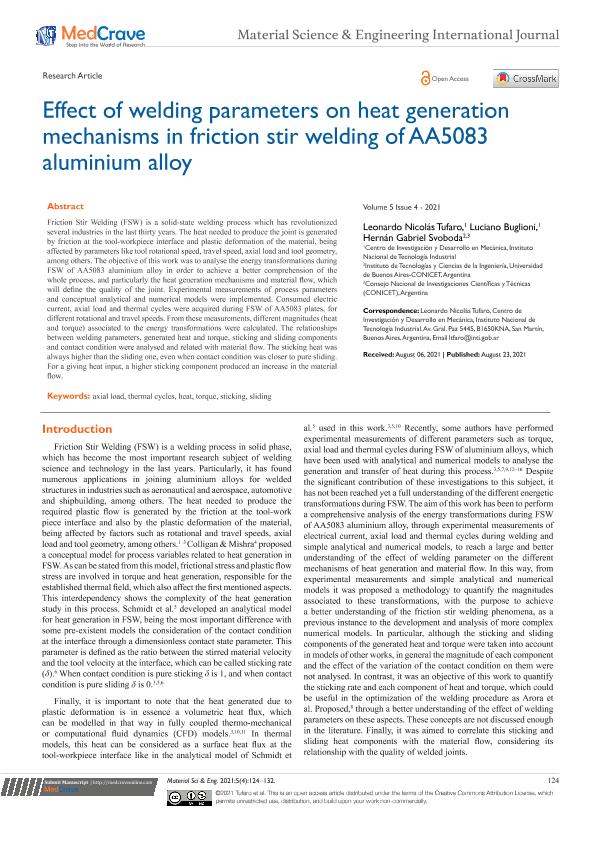Artículo
Effect of welding parameters on heat generation mechanisms in friction stir welding of AA5083 aluminium alloy
Fecha de publicación:
08/2021
Editorial:
MedCrave
Revista:
Materials Science & Engineering International Journal
ISSN:
2574-9927
Idioma:
Inglés
Tipo de recurso:
Artículo publicado
Clasificación temática:
Resumen
Friction Stir Welding (FSW) is a solid-state welding process which has revolutionized several industries in the last thirty years. The heat needed to produce the joint is generated by friction at the tool-workpiece interface and plastic deformation of the material, being affected by parameters like tool rotational speed, travel speed, axial load and tool geometry, among others. The objective of this work was to analyse the energy transformations during FSW of AA5083 aluminium alloy in order to achieve a better comprehension of the whole process, and particularly the heat generation mechanisms and material flow, which will define the quality of the joint. Experimental measurements of process parameters and conceptual analytical and numerical models were implemented. Consumed electric current, axial load and thermal cycles were acquired during FSW of AA5083 plates, for different rotational and travel speeds. From these measurements, different magnitudes (heat and torque) associated to the energy transformations were calculated. The relationships between welding parameters, generated heat and torque, sticking and sliding components and contact condition were analysed and related with material flow. The sticking heat was always higher than the sliding one, even when contact condition was closer to pure sliding. For a giving heat input, a higher sticking component produced an increase in the material flow.
Palabras clave:
FRICTION STIR WELDING
,
THERMAL CYCLE
,
AXIAL LOAD
,
STICKING
Archivos asociados
Licencia
Identificadores
Colecciones
Articulos(INTECIN)
Articulos de INST.D/TEC.Y CS.DE LA ING."HILARIO FERNANDEZ LONG"
Articulos de INST.D/TEC.Y CS.DE LA ING."HILARIO FERNANDEZ LONG"
Citación
Tufaro, Leonardo Nicolás; Buglioni, Luciano; Svoboda, Hernán Gabriel; Effect of welding parameters on heat generation mechanisms in friction stir welding of AA5083 aluminium alloy; MedCrave ; Materials Science & Engineering International Journal; 5; 4; 8-2021; 124-132
Compartir
Altmétricas




